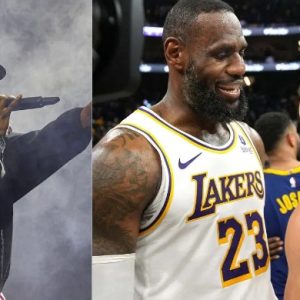As all boxing fans know, the great, indeed the incomparable Muhammad Ali was diagnosed with Parkinson’s Syndrome during his later years. In fact, Ali may have been suffering from the terrible decease when he was still only somewhere around the age of 40. Ali, once the possessor of one of the sharpest minds in all of sports, also had in his prime the physical speed and grace to match. But come the late 1970s, Ali was visibly slowing down, to the point where he would soon be able to talk only in a whisper, to the point where his face was frozen, and his limbs were stiffened, his once-super fast hands often susceptible to tremors.
The condition Ali bravely spent well over 30 years fighting may well have afflicted him even if he had not been a boxer. We will never know. But ask most people, and they will tell you, of course it was the fights Ali had, of course it was the punches he took to the head that caused his terrible condition. And Ali certainly did take a lot of punches in his later fights, when he had returned from his nearly four-year exile, no longer a defensive boxer who was so fast he was almost impossible to hit cleanly.
No, the 1970’s Ali showed something that he never had to show in his earlier incarnation – that he could take a hell of a punch. Against genuine bangers such as Joe Frazier, George Foreman, and Earnie Shavers, Ali showed the world his toughness, his ability to take it as well as dish it out. Ali’s chin ranks up there with the greatest ever seen in the sport

And Ali ultimately paid the price.
It was sad seeing Ali on TV in the 1980s and 1990s, even though the great man insisted he never felt sorry for himself. Would things have been different if Ali had walked away from the rigours of the ring far sooner than he did? Again, we will never know. But Larry Holmes – who was forced to fight the comebacking Ali in 1980, Larry beating Ali up in what was a terrible mismatch where Holmes actually held back with his shots – says he has a theory on the one fight that was most instrumental in handing Ali his post-career condition.
Speaking with the Boxing TV podcast, Holmes said he puts the blame on the fight a 35 year old Ali had with the fearsome Earnie Shavers, this fight going down in September of 1977, when Ali was way past his best but was still as brave, as tough, and as proud and courageous as ever. Fans at the time were dumbfounded when it came to trying to explain how the vicious blows Ali took failed to knock him down and out. Were those 15 rounds with Shavers the last straw, for Ali’s brain, for Ali’s internal organs, and eventually for Ali’s quality of life?
Holmes says he thinks so.
“I blame Earnie Shavers, I shouldn’t but I do,” Holmes said on the podcast. “Ali was okay before he fought Shavers. When Shavers started hitting him in the head like that, he wasn’t the same walking around. I’ve watched it and studied it. He [Shavers] beat the hell out of him.”
Ali won the fight yet plenty of fans felt he had been gifted the decision. Holmes, who of course knows all about the withering power the late, great Shavers carried, does make some interesting points. But was Ali really “okay before he fought Shavers?” Certainly, nobody at the time felt the great man would ever become a shambling wreck the way so many ring warriors from previous decades had become. It couldn’t happen to Ali! No way. But it did.
And maybe Holmes is right, maybe if those 45 minutes of hell with Shavers, if they could have somehow been removed from Ali’s 35 year old body and brain, perhaps it would have made all the difference in the world. For sure, Ali was really rolling the dice, pushing his luck by sticking around as long as he did and in agreeing to fight a monster puncher like Shavers as he did so.
Ali of course shipped some seriously damaging blows in two of his three fights with Frazier, in “The Thrilla” especially, and in the Foreman epic in Africa. As such, maybe Ali was already destined to suffer the way he (and we fans of his) did from around 1980 to his death in 2016. Maybe.
Again, we will never know. But it is possible that, had Ali quit the ring with a 54-2 record instead of a 56-5 record, his golden years would have been far more golden.





